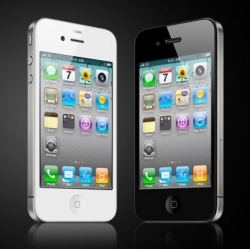
Apple’s digital "assistant" Siri isn’t welcome at IBM; neither are Apple’s voice dictation features in the iPhone and iPad. IBM CIO Jeanette Horan revealed in an interview with Technology Review that the company turns off Siri on employees’ iPhones for fear that the service stores employees’ queries somewhere outside of IBM’s control. The move highlights some of the problems large enterprises face when employees begin using their own devices at work.
"We’re just extraordinarily conservative," Horan said. "It’s the nature of our business."
The revelation is making waves among the Apple blogosphere, but the company’s policy isn’t actually all that surprising. Siri—and Apple’s voice dictation features—send voice commands through the Internet to Apple’s servers for processing before returning a text result. Apple doesn’t make it clear whether it stores that data, for how long, or who has access to it. (As noted by our friends at Wired, this behavior from Siri is what caused the ACLU to post a warning about the technology in March of this year.) IBM most likely wants to protect its trade secrets, which is why it wouldn’t want any sort of spoken data from employees being stored on Apple’s servers.
What is surprising? It appears that not many companies have joined IBM in forbidding the use of Siri for security purposes. I asked on Twitter whether anyone else’s companies have a similar policy, and received extremely few responses saying yes. The only people—so far—who have acknowledged any kind of Siri policy were government workers and some school employees. Most said their employers had not yet added Siri to their list of forbidden technologies.
Some responses did point out that their employers blocked the use of Google’s services for the same reasons (storing data on Google’s servers), implying that corporations are still catching up on what kind of risks Siri and voice dictation services might present. "I figure a big reason that Siri use is not on the radar screen yet is because the idea of harvesting information from voice inquiries is not as self-evident as it would be if the employees were transmitting written text to the platform provider," Chicago-based intellectual property lawyer Evan Brown told Ars. "We think of voice communications as ephemeral, not intuitively realizing that for the machine that is Siri to process it, it must be transformed into another medium (text) for processing."
On his blog, Brown went into further detail about IBM’s protection of trade secrets. "[A] company can enforce its exclusive rights to possess and use information that (1) gives that company a competitive advantage, and (2) which is subject to efforts to keep secret. That latter part—keeping the information secret—is a big reason for nondisclosure agreements, password protected servers, and sensible restrictions on employee use of third party technologies (like social media and search tools like Siri)," he wrote.
When speaking to Ars, Brown also pointed out that IBM and its ilk are probably only the beginning when it comes to banning Siri. Other industries, like law and medicine, may soon follow due to laws related to attorney-client privilege or patient-doctor privilege. "Come to think of it, a person really wouldn’t want their doctor asking too many questions of Siri to practice medicine anyway!" he added.
Does your company block access to Siri on employee iPhones?
